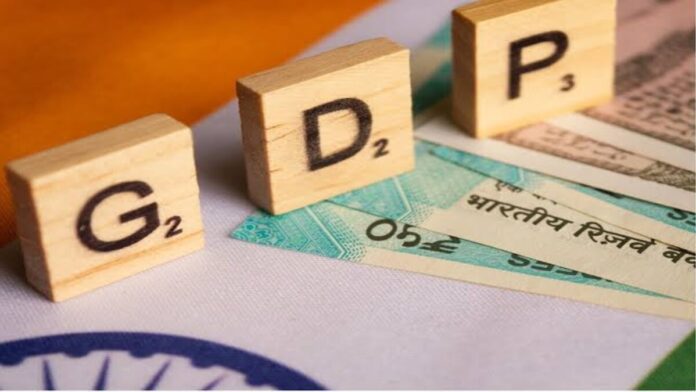India’s growth estimate for 2024–25 (FY25) was increased by 20 basis points (bps) to 7% from 6.8% by the International Monetary Fund (IMF). In an update to its World Economic projection (WEO) on Tuesday, July 16, the IMF stated that improved private consumption, notably in rural India, is the reason for the improvement in the growth projection.
In April, the IMF revised its prediction for India’s GDP growth from 6.5% to 6.8%. The United Nations’ (UN) global finance agency maintained its forecast for the GDP of Asia’s third-largest economy to increase by 6.5% in the 2025–2026 fiscal year (FY26).
The IMF further stated that it is still projecting a dreary 3.2% growth rate for the global economy this year, which is a slight decrease from the 3.3% growth rate it had predicted in April. Prior to the pandemic upending economic activity in 2019, global growth has averaged 3.8% annually from 2000 to 2019.
In a post on the microblogging site “X,” Gita Gopinath, First Deputy Managing Director (MD) of the IMF and a former Chief Economist at the organisation, predicted that growth in China and India would account for over half of global growth in 2024. India is still the biggest economy with the quickest rate of growth.
According to official data, India’s GDP increased by 8.2% in FY24. The GDP expanded by 7.2% in 2022–2023 and 8.7% in 2021–2022, in that order. During its most recent meeting to discuss monetary policy, the Reserve Bank of India (RBI) increased the GDP estimate for FY25 from the previously set 7% to 7.2%.
The IMF revised down its growth estimate for China from 5.2% in 2023 to 5% this year, down from 4.6% in April, in part due to a spike in Chinese exports at the beginning of 2024.
The IMF prediction was released prior to Beijing’s announcement on Monday that the economy of China, which is the second largest in the world after the US, grew at a less rapid pace than anticipated from April through June, averaging 4.7% annually, compared to 5.3% in the first three months of the year.
China’s economy, which once regularly grew at a double-digit annual pace, is facing significant challenges, notably the collapse of housing market and an aging population leaving the country with labour shortages. According to IMF’s chief economist Pierre-Olivier Gourinchas, China’s growth will slow to 3.3 per cent by 2029.
The IMF lowered its outlook for 2024 growth in Japan to 0.7 per cent from the 0.9 per cent it had envisioned in April and from 1.9 per cent in 2023. A major automobile plant shutdownand weak private investment disrupted Japan’s first-quarter growth.
The global economy is set for modest growth over the next two years amid cooling activity in the US and a bottoming out in Europe. The IMF warned that momentum in the fight against inflation is slowing, which could delay an easing of interest rates and keep up strong dollar pressure on developing economies.
The IMF kept its 2024 global real GDP growth forecast unchanged from April at 3.2 per cent and raised its 2025 forecast by 0.1 percentage point to 3.3 per cent. The forecasts fail to shift growth from the lackluster levels that IMF managing director Kristalina Georgieva has warned would lead to “the tepid twenties.”
After surging to 8.7 per cent in 2022 as the global economy rapidly recovered from the pandemic recession, worldwide inflation is expected to continue easing — from 6.7 per cent in 2023 to 5.9 per cent this year and 4.4 per cent in 2025. But a weak first quarter in the US led the IMF to downgrade its forecast for US growth this year to 2.6 per cent from 2.7 per cent it had predicted in April.
The IMF noted that continued trade and geopolitical tensions might fuel price pressures by driving up the cost of imported goods along the supply chain, and that there were near-term upside risks to inflation as service prices remained high despite wage growth in the labor-intensive sector.
The IMF stated, “The possibility of higher interest rates for even longer periods of time has increased the risk of elevated inflation, which in turn increases external, fiscal, and financial risks.” The IMF also issued a warning about possible changes in economic policy brought on by this year’s several elections, which might have unfavourable effects on the rest of the world.




